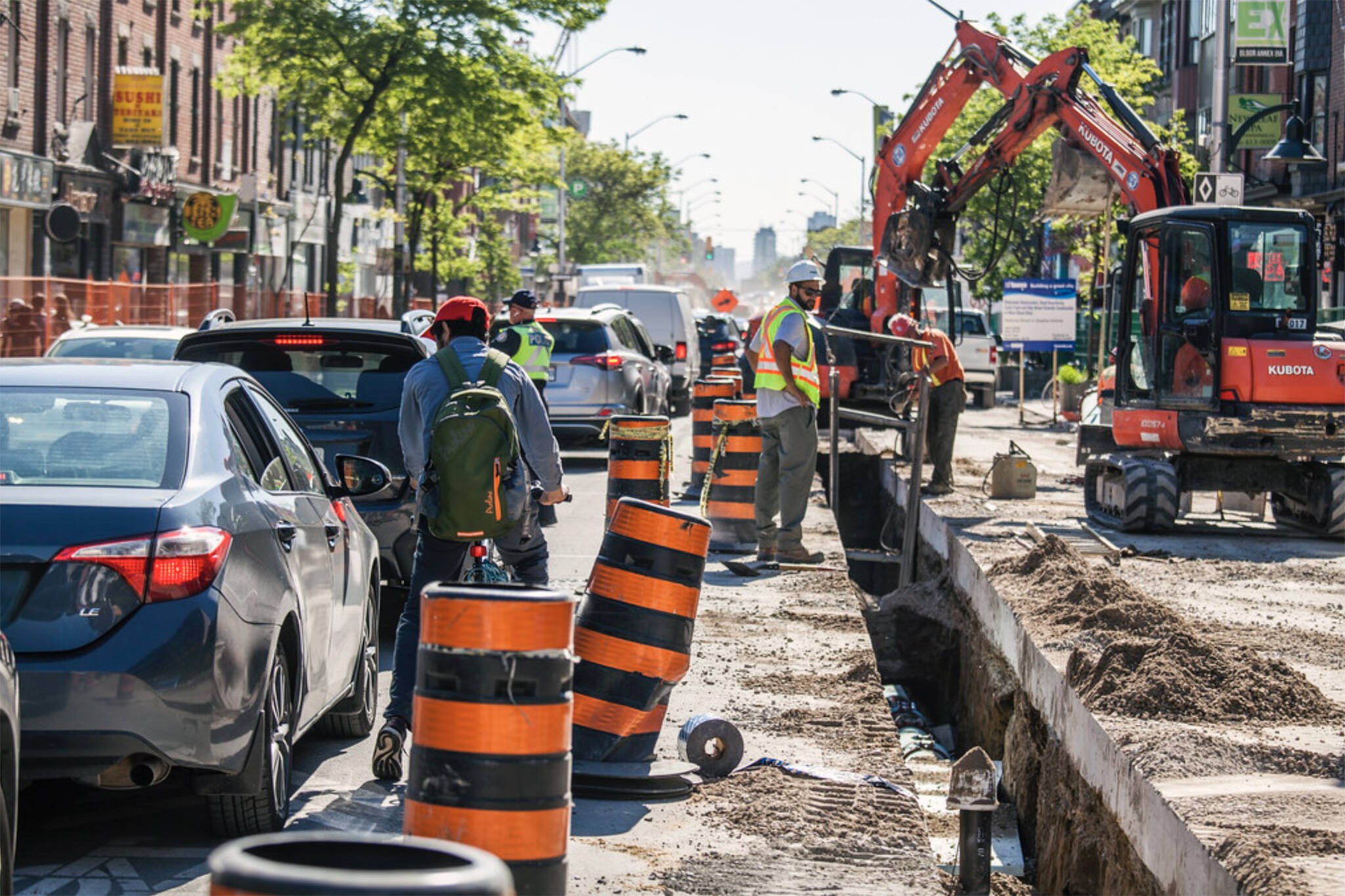
Toronto's watermains are quietly leaking more than a million litres per day
Though Toronto may have a penchant for replacing beautiful historic buildings with modern cookie cutter condos — or even worse, Frankensteining the latter behind a mere facade of the former — it seems to have the opposite approach when it comes to key parts of infrastructure that are hundreds of years old and far worse for wear.
Take, for example, the thousands of kilometres of city watermains that snake underground, a good chunk of which are anywhere from 80 years to well over a century old — and which, quite unsurprisingly, are leaking tons of fresh water daily.
Unfortunately, "tons" in this case is far more than any resident would fathom, adding up to a whopping 103 million litres or so per day for the last 15 years, according to the findings of a new study from the Residential and Civil Construction Alliance of Ontario (RCCAO).
To put that into perspective, the city has long been hemhorraging enough usable water each day to fill 15,000 Olympic-sized swimming pools or fulfill the daily demands of a quarter of a million citizens, all thanks to some ancient pipes that are prone to dramatic burts like the one that currently has a stretch of Bay Street shut down for a month
The issue is not specific to Toronto, but is Ontariowide, and is something that the consortium believes demand immediate attention and funding to remedy given that the province is losing up to 40 per cent of its water supply in some areas.
#ICYMI: The Residential and Civil Construction Alliance of Ontario is calling on the federal government to establish a fund to help municipalities fix their leaky pipes and crumbling sewers.https://t.co/YbYgP4Yh6x@_RCCAO #infrastructure #drinkingwater #wastewater #stormwater pic.twitter.com/6a77zzF1d4
— Water Canada (@CanadianWater) April 19, 2021
It's not just the obvious and shocking waste of clean water that is troubling, but also the costs and consequences of sudden breaks and other dramatic incidents that occur when a pipe is pushed past its service life — something that happens in Toronto about four times a day.
"Deferring infrastructure investments leads to asset value loss, reduction of service quality, endangerment of public health and the environment, and higher premiums in upkeeping the assets," the lengthy report reads, going on to suggest the logical solution of "proactive maintenance and upgrades" before ruptures happen.
Because of the hidden nature of such systems, their deterioration is something easily ignored until an emergency takes place, which often on the surface level leads to a routine road closure and some repair work that the general public pays little mind to.
But to consider the fact that we have been allowing the loss such a drastic amount of fresh water for so long without any significant action when so many communities have none — and the planet in general faces a shortage in the coming decades — is appalling, to say the least.
Latest Videos
Latest Videos
Join the conversation Load comments







